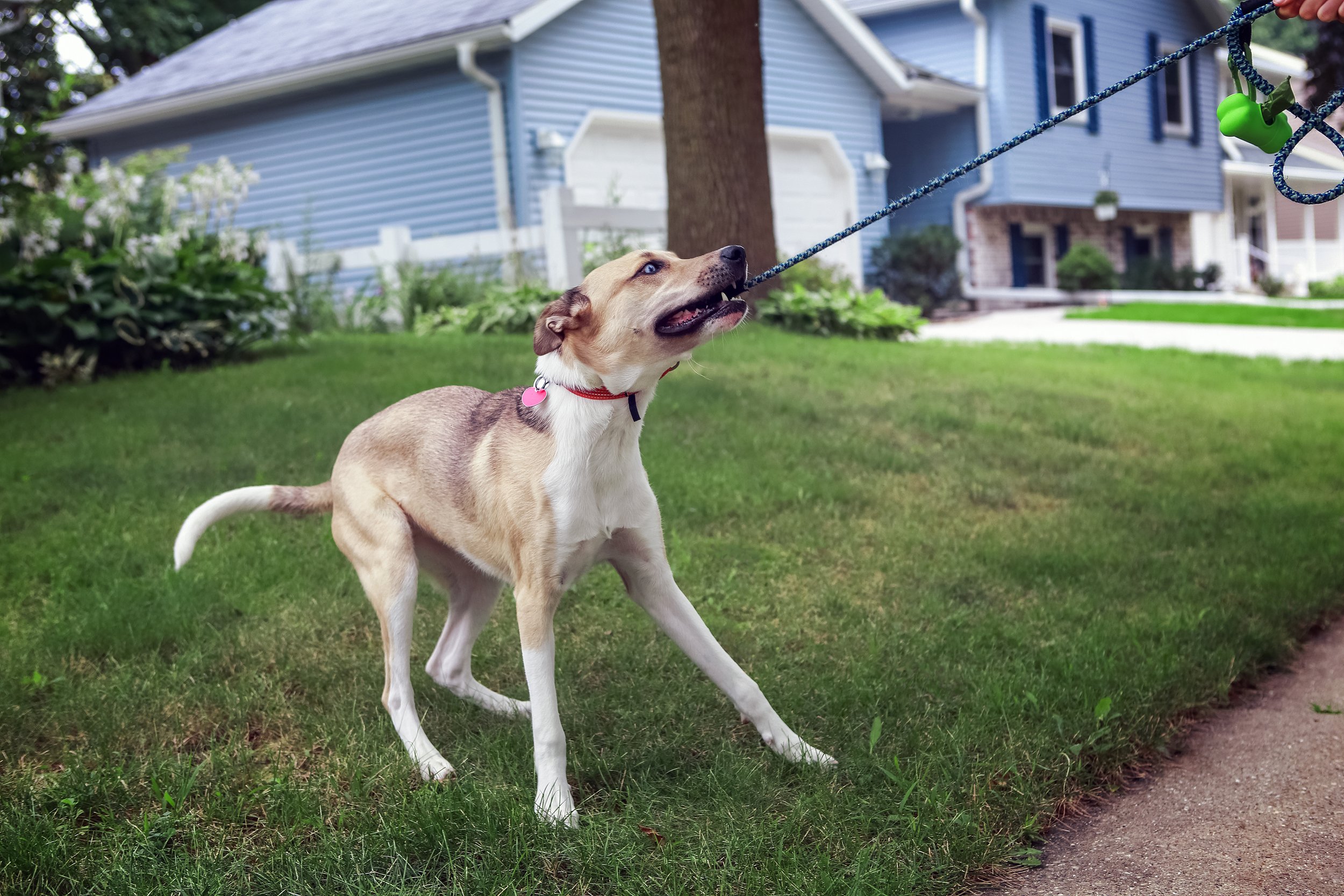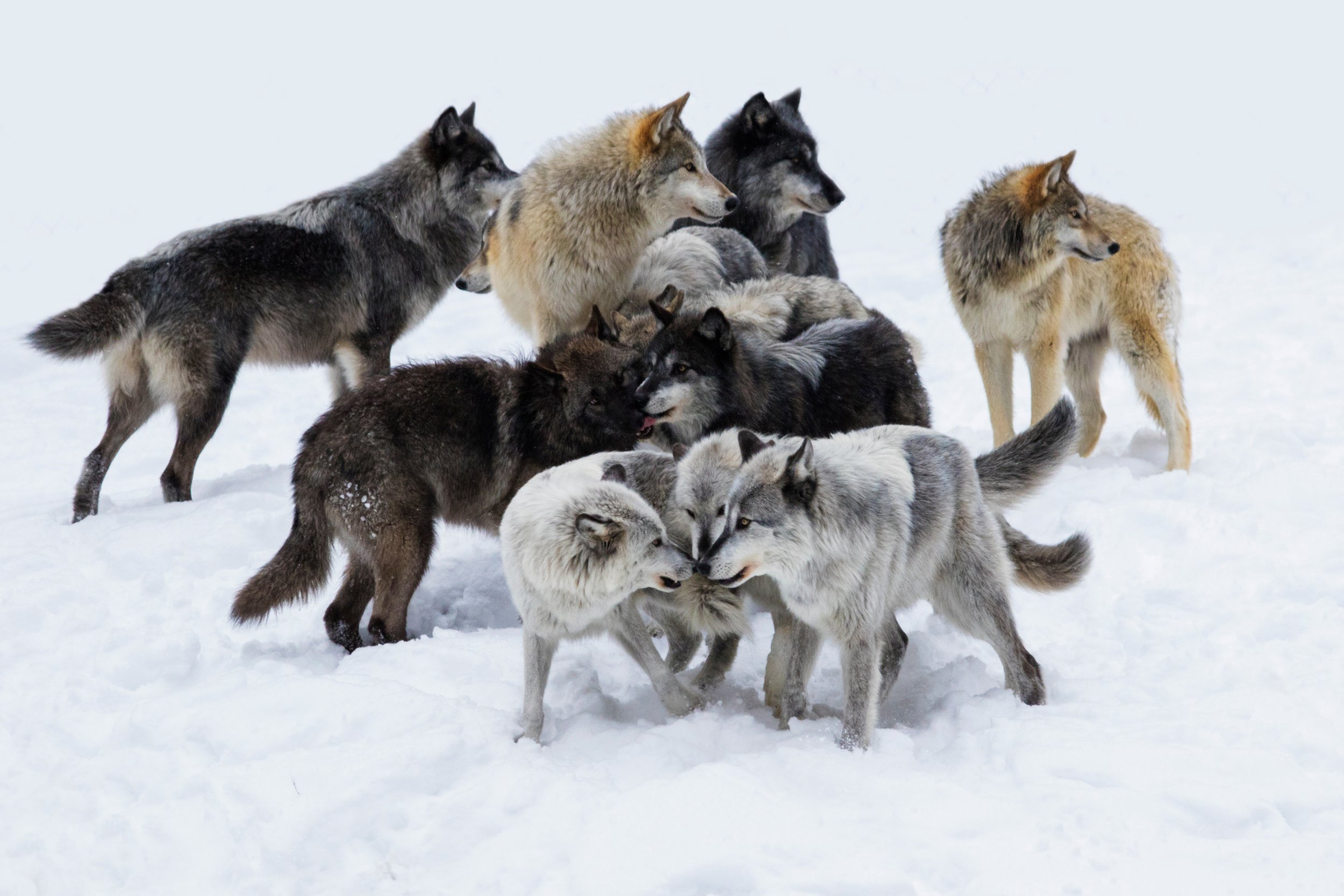5 SIMPLE REASONS WHY YOUR DOG IS NOT TRYING TO DOMINATE YOU (Revised 2024)
Reason 1: Fearfulness
I have heard far too often from dog owners that an aggressive response to eye contact or a verbal scolding is a sign of dominance and that you shouldn’t shy away from this Western-style showdown (“Alexa play “The Good, The Bad and the Ugly” theme”).
So, why the aggressive response?
Direct eye contact, especially with a lesser-known dog can be quite intimidating! To put it into perspective if you were walking down the street and an unknown man was walking towards you, not breaking his line of sight even for a second, how would you feel? And if you couldn’t escape the situation nor communicate how you felt, what would you do?
Verbally scolding a dog (usually paired with bending over and pointing at the dog’s face) can have many implications, it is a punishment and so it can, over time, damage the relationship between owner and dog, leave the dog confused and anxious about what behaviour has caused this to happen which can lead to avoidance behaviours, resistance to voice commands (another so-called “dominant” behaviour) and last but not least, an aggressive response.
So, when we put it into perspective, it’s clear to see that in this scenario, aggression is due to prolonged, frequent or intense negative emotion. Adding even more negative emotion will not remedy this.
Punishment is not a pleasant experience and the only reason it may appear to “work” in some cases is because the dog inhibits his/her behaviour for fear of something bad happening. This is not a happy dog and may develop other issues as a result.
Reason 2: Your dog is frustrated!
When a dog pulls on the lead, he/she either wants to get to something, or wants to get away from something, it really is as simple as that! Yet I still read many comments about a dog trying to “dominate” by doing this. The barking that may accompany this can simply be a manifestation of that frustration.
Mounting (or humping) is commonly misdiagnosed as a dominant behaviour. When we take a step back and look at the broader picture there is always an alternative explanation for this behaviour. A lot of the time it is due to frustration or overstimulation, hence why it is usually preceded by something exciting (the owner returns home or maybe one of the youngsters are running riot around the house!)
This brings us nicely into the next one....
Reason 3: A lack of exercise, stimulation or an outlet.
An under-stimulated dog will find ways to release their pent-up energy, and yes, mounting can be one of those outlets! On top of this there's potential for excessive chewing, stealing toys or other objects, barking for attention, jumping up more frequently, the list goes on, all of which can be misconstrued as dominant behaviour.
I don’t just mean walk with your dog on lead around the block, or throw a tennis ball for 30 minutes on your local field. Socialisation, exploration (using search games or scentwork) teaching your dog new tricks and just interacting with your dog on the exercise can make a massive difference.
Dogs have a variety of appreances for a reason, they all have evolved for a specific purpose, the better we can recreate that purpose on a daily basis, the more fulfilled that dog can be.
Reason 4: Mine!
The potential for a dog to guard resources such as food, toys and other people can vary from breed to breed, bloodline to bloodline and can depend on what events occur in the home.
Technically speaking, a dog may “dominate” another over a resource but it’s important to note that dominance is not a personality trait, and so what this means is the dog wants, needs or values that resource more than the other. For example, Fido will display aggression over food towards Max, but Max may always win ownership of comfiest spot in the house, this in itself discredits the dominance theory since there is no clear hierarchy in play.
Reason 5: The little-known fact about Dominance Theory...
Firstly, we need to talk about wolves because this is where the idea comes from and has been applied to dogs. In the wild, a pack of wolves contains an adult breeding pair and their offspring, when the offspring reaches maturity, they go their own way to start a family of their own. So, in fact they only attain their leading position in the pack by breeding and looking after their own offspring, much like us.
Counter intuitively, dominance theory was devised by observing captive, unrelated and mature wolves which observed the increased tensions within the group and labelled the winner of the altercations as “alpha”. So not only were they not part of the same family, many were adults and they were forced to occupy the same small space.
Not only this, but Dr David Mech, the man who observed and helped label the dominance theory in wolves, has rejected this theory after observing wolves in the wild.
So not only are dogs and wolves very different temperamentally, but the model that has been used to explain and try to alter dog behaviour, was carried out on wolves and is scientifically wrong.
So, if a wolf does not try to dominate their own species within a pack, you can rest assured that a dog most certainly won’t try to dominate a human.





